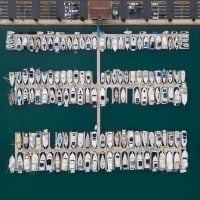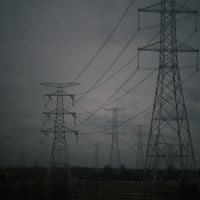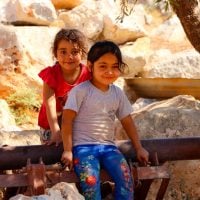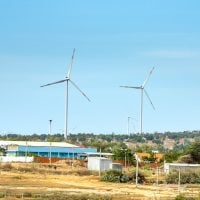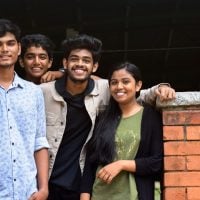Deadline: 10 April 2020
The U.S. Department of State, Bureau of Democracy, Human Rights and Labor (DRL) announces an open competition to promote and protect Women’s Right to Property, Free and Fair Elections, and Media Freedom in Pakistan.
U.S. human rights and democracy assistance will contribute to a stable Pakistan by promoting governance based on democratic principles, respect for human rights, and peaceful coexistence. It will also provide for the protection of, and advocacy for, the rights of the most vulnerable, including youth, women, and religious and ethnic minorities, as well as mitigate the impact of conflict on Pakistani communities.
Program Areas and Activities
Promoting Women’s Legal Right to Property: $750,000-$1,250,000 for 2 years
Programming should support women’s legal right to property in Pakistan. Despite some legal protections of women’s access to property, discriminatory behavior and preferential treatment of men routinely deprive women in Pakistan of their property rights. These injustices frequently occur in cases of marriage, divorce, and inheritance and through tactics including intimidation, deceit, and manipulation.
This program must include a diverse representation of women of different religious, socio-economic, and geographic backgrounds. Program activities may include but are not limited to:
- Engage key stakeholders including government, legislative members, judicial actors, community, civil society, and religious leaders to promote and protect women’s property rights by improving awareness and aiding in the implementation of existing laws.
- Engagement can include improving awareness of specific laws on inheritance protections at the national and provincial levels.
- Engage key stakeholders to advocate for enacting additional legal protections for women’s rights;
- Monitor select court cases to ensure women’s rights within the law are being upheld;
- Build capacity of legal services such as legal aid centers to increase women’s access to judicial processes and exercising of their rights;
- Raise awareness in local communities of women’s right to property and increase willingness, among women and men, to protect, promote, and ensure it.
Promoting Free and Fair Elections in Pakistan: $2,000,000-$2,750,000 for 3 years
DRL’s goal is to promote free and fair elections through civic education, voter education, and election monitoring. Programming should contribute to fair and representative general elections in 2023. The program will also coordinate with existing efforts by the Election Commission of Pakistan and relevant stakeholders to ensure consistency in election related activities and electoral reforms.
Program activities may include, but are not limited to:
- Conduct voter outreach and initiatives to improve participation, particularly among voters from marginalized groups including women, religious minorities, people with disabilities, and sexual and gender minorities;
- Provide training on campaigning to support female candidates and their ability to win party nominations to contest in general seats as well as reserved seats;
- Provide education on processes for political candidacy, including training on developing political campaigns and platforms. Training attendees should include diverse representation including those from marginalized populations and different political parties;
- Coordinate with relevant stakeholders to support implementation of election laws and processes in Pakistan;
- Organize local civil society to monitor the election process and voting; document instances where voting processes do not comply with stated guidelines.
Promoting Free and Independent Media: $750,000-$1,250,000 for 2 years
DRL’s goal is to promote freedom of expression by supporting free and independent media. Programs should expand the space for independent media entities to report with transparency and objectivity, maintain independence, build sustainability, and reduce self-censorship, particularly on sensitive topics such as religious tolerance, gender, conflict, and governance. Targeted independent media entities must be those that promote human rights, gender equality, rule of law, democratic processes, and government accountability, and that empower women, religious minorities, sexual and gender minorities, and/or people with disabilities. Though the program can be nationwide, it should focus on areas such as former FATA, Balochistan, Interior Sindh, and/or South Punjab as well as impoverished and/or rural areas. Programming should also prioritize media entities that include Urdu and local language journalism to strengthen reporting to local communities.
Activities could include:
- Develop and implement a small grants program to fund, train, and mentor independent media entities, improve their physical security, and teach digital best practices;
- Conduct trainings on topics such as journalistic skill-building in reporting, writing, editing, and filming; ethical journalism; countering disinformation; and countering harassment in the workplace;
- Train and support women journalists to build their journalism skills and increase their ability to access press clubs and reporting opportunities;
- Design and implement advocacy efforts at press clubs, with male journalists, and with other media stakeholders to increase acceptance and inclusion of women journalists;
- Train journalists on the policies that advance and hinder female journalists; to include policies that intentionally or unintentionally prevent women from engaging in media, workplace harassment policies, and advancement opportunities for women in the workplace.
Where appropriate, competitive proposals may include:
- Opportunities for beneficiaries to apply their new knowledge and skills in practical efforts;
- Solicitation of feedback and suggestions from beneficiaries when developing activities in order to strengthen the sustainability of programs and participant ownership of project outcomes;
- Input from participants on sustainability plans and systematic review of the plans throughout the life of the project, with adjustments made as necessary;
- Inclusion of vulnerable populations;
- Joint identification and definition of key concepts with relevant stakeholders and stakeholder input into project activities;
- Systematic follow up with beneficiaries at specific intervals after the completion of activities to track how beneficiaries are retaining new knowledge as well as applying their new skills.
Funding Information
- Funding Floor: $750,000
- Funding Ceiling: $2,750,000
- Period of Performance: 24 months
- Anticipated Time to Award, Pending Availability of Funds: 5 months
Eligibility Criteria
DRL welcomes applications from U.S.-based and foreign-based non-profit organizations/nongovernment organizations (NGO) and public international organizations; private, public, or state institutions of higher education; and for-profit organizations or businesses. DRL’s preference is to work with non-profit entities; however, there may be some occasions when a for-profit entity is best suited.
How to Apply
Applicants can find application forms, kits, or other materials needed to apply on the given website.
For more information, visit https://www.grants.gov/web/grants/view-opportunity.html?oppId=324814


